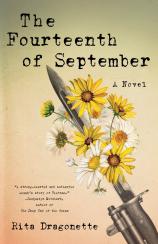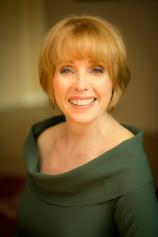Reading Group Guide
Discussion Questions
The Fourteenth of September

Featuring questions by New York Times bestselling author Jacquelyn Mitchard
1. Women of a previous generation were not combat soldiers, but they were often in harm’s way. So how is Judy’s situation, given the role she has agreed to play in the Vietnam conflict, the same or different from the young men she knows who are facing the draft?
2. Is David a true philosophical leader? Is his commitment to the anti-war movement really more a way for him to express his own drama? Or is his nature explainable by the fact of his being so young?
3. Discuss the character of Wil. Wil is fatalistic about his chances for survival. Is he doomed by fate, like his chosen namesake, or by his own demons?
4. The issue of women’s friendship was a controversy during the Vietnam anti-war movement, which preceded the women’s movement in United States history. It is also a controversy in THE FOURTEENTH OF SEPTEMBER. Does Judy form strong women’s friendships, or is she, like so many women activists during the Vietnam period, a handmaid to the political and social momentum created by the men in her circle?
5. It’s said that the end of a novel is the beginning of the world that comes after the story ends. What does the way that Rita Dragonette wrote the conclusion say about the way Judy’s brief but intense involvement with the anti-war movement will inform the rest of her life?
6. Veteran writers insist that every character in a novel has a secret. Talk about some of the secrets kept by major and minor characters in THE FOURTEENTH OF SEPTEMBER. What is Michael’s secret? How about Lori? Does Vida, who seems so open, have a secret as well?
7. How is the issue of morality in the United States’ involvement in Vietnam played out in the novel? How is an understanding of the USA’s role in Vietnam relevant to young American readers as they consider their country’s involvement in international conflicts?
8. Many young men who faced the draft for the Vietnam War had fathers who were veterans of World War II or the Korean conflict. Judy’s situation is unusual in that she’s a young woman in conflict with her mother, who is a veteran. How do you think the mother’s character was shaped by her experience in what history considers a “just war” as opposed to Judy’s experience as a protestor?
9. Is there a current conflict involving the United States that could end up “another Vietnam?” Are stories about conflicts in which the United States did not play a glorious role as important as those in which U.S. forces were heroes? Why?
10. In some respects, Judy is very much a girl when she heads for college, inexperienced and naive. How do you think her involvement in the anti-war movement contributes to the character’s maturity? How does it shape her future? What other events in this critical year make Judy the woman she will become?
Bonus! Test your lit knowledge. Do you believe that there is a literature of anti-war novels, just as there is a literature of combat novels? What are other novels that are like THE FOURTEENTH OF SEPTEMBER for other wars? Would you consider DOCTOR ZHIVAGO to be an anti-war story? A LAKE IN THE WOODS by Tim O’Brien? SLAUGHTERHOUSE FIVE by Kurt Vonnegut? Hemingway’s A FAREWELL TO ARMS?
The Fourteenth of September
- Publication Date: September 18, 2018
- Genres: Fiction, Historical Fiction, Women's Fiction
- Paperback: 376 pages
- Publisher: She Writes Press
- ISBN-10: 1631524534
- ISBN-13: 9781631524530







